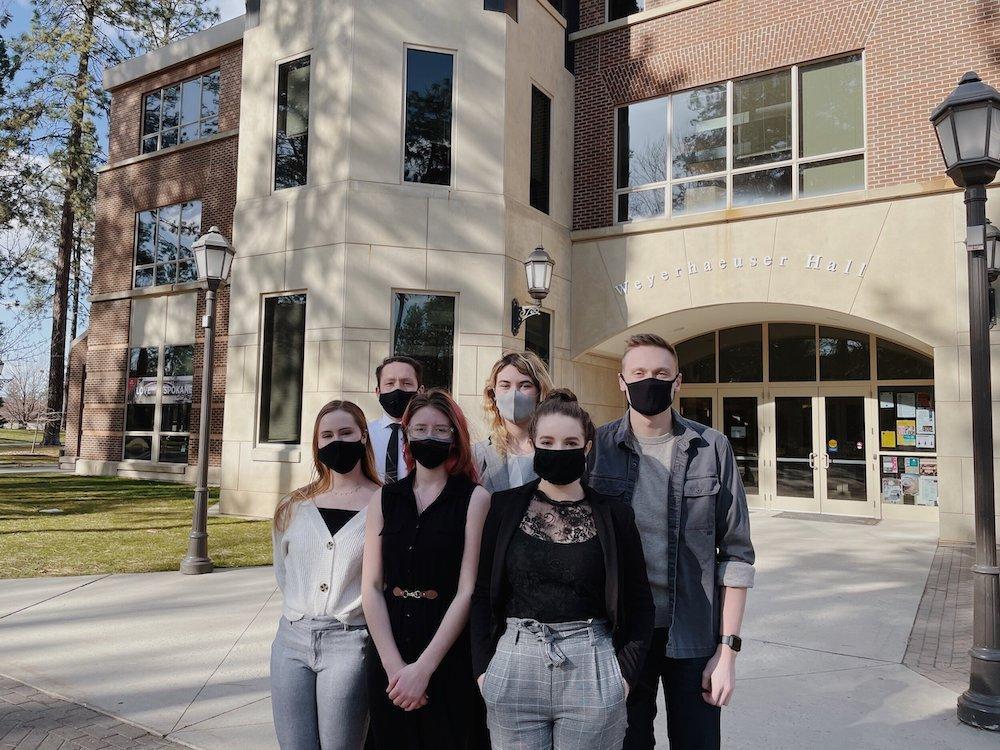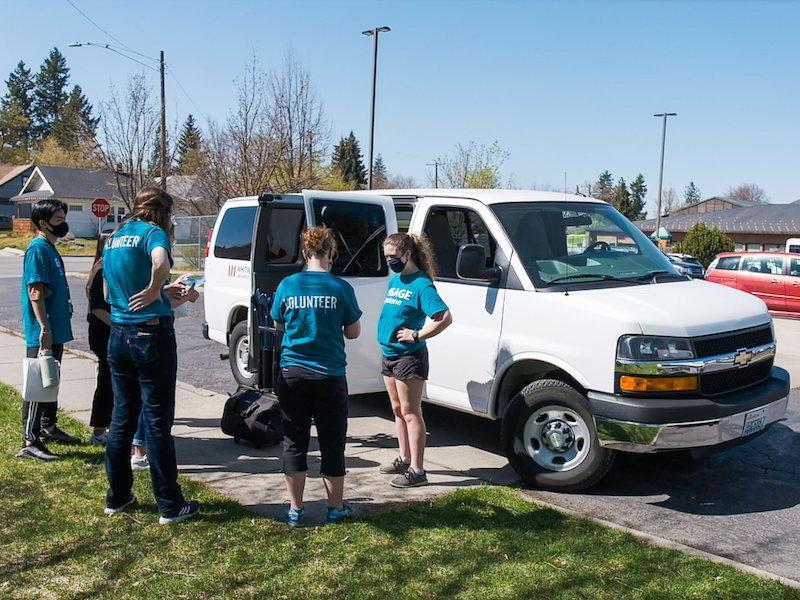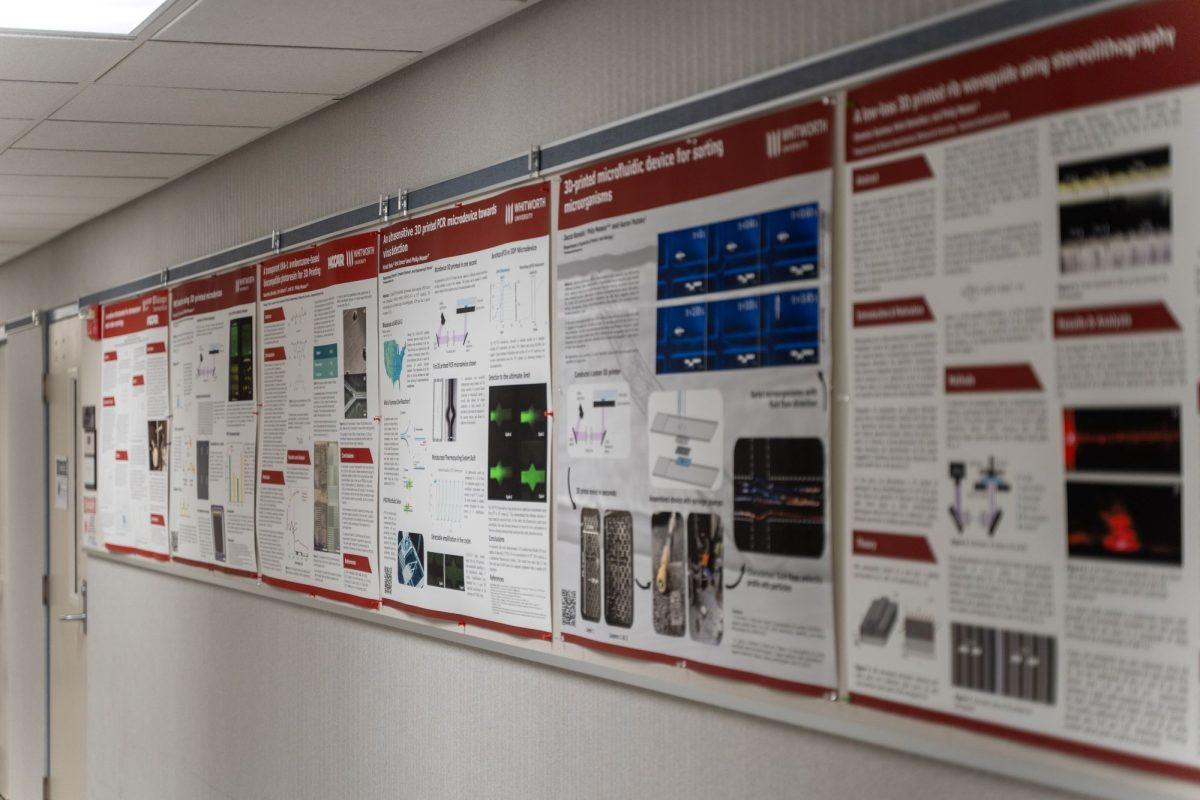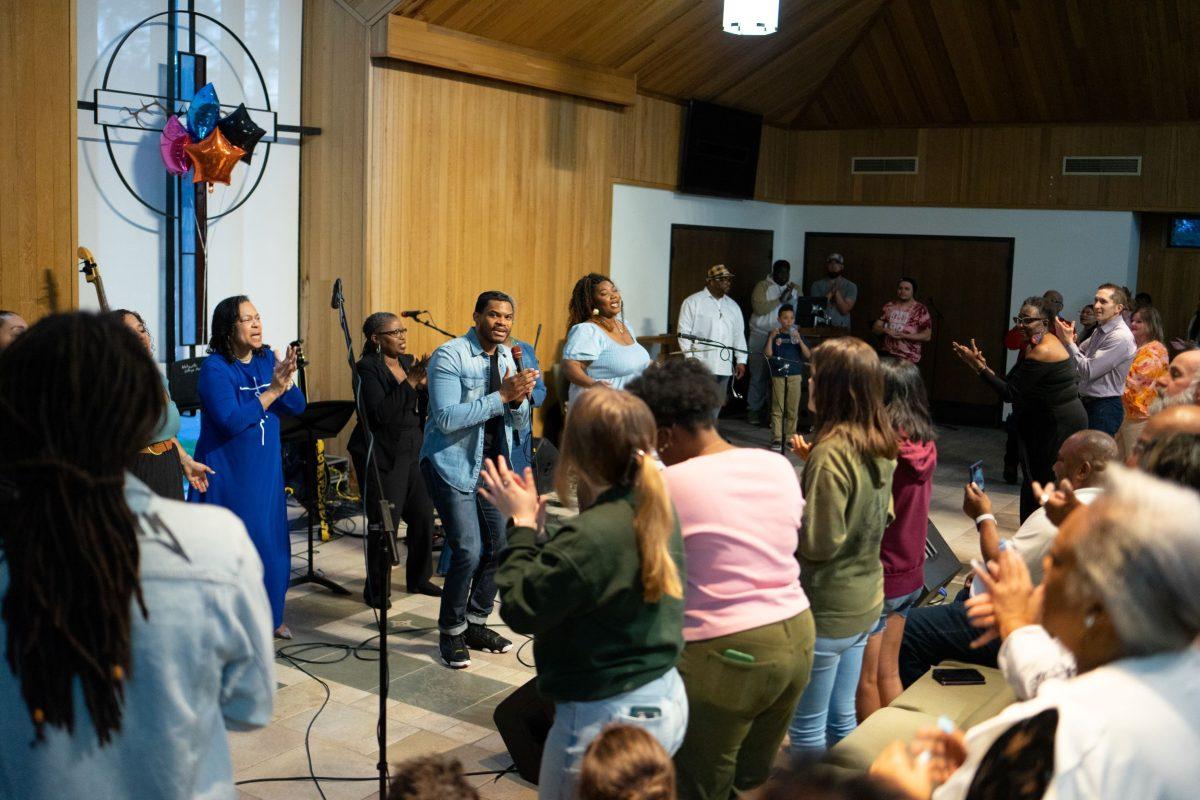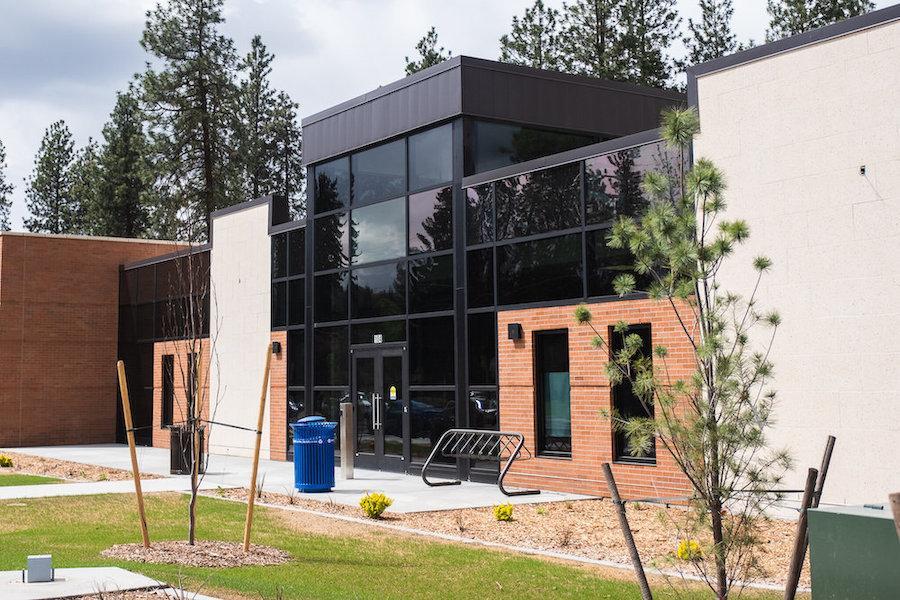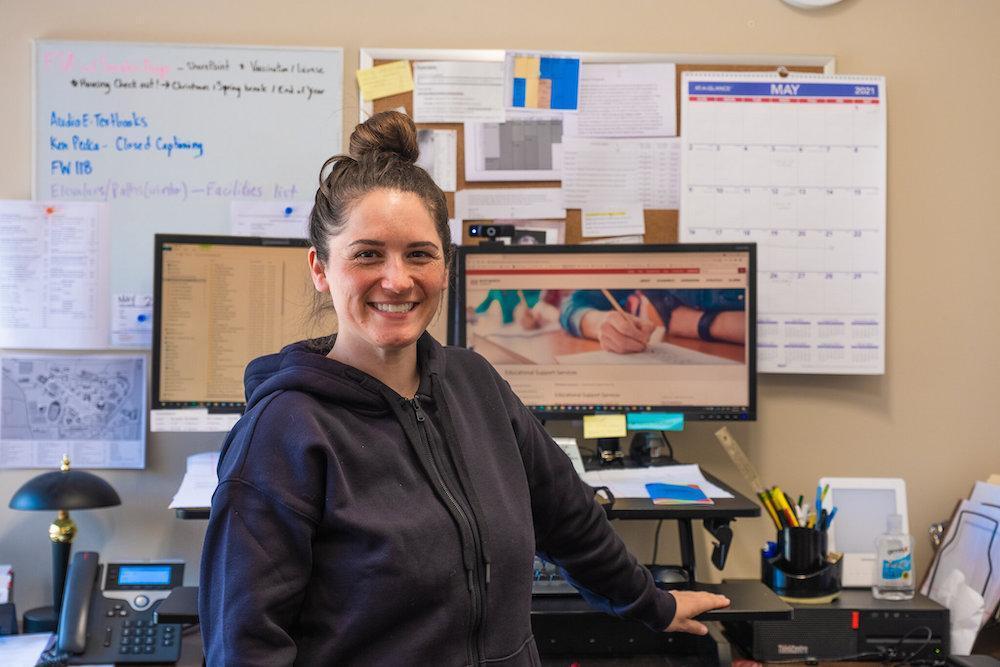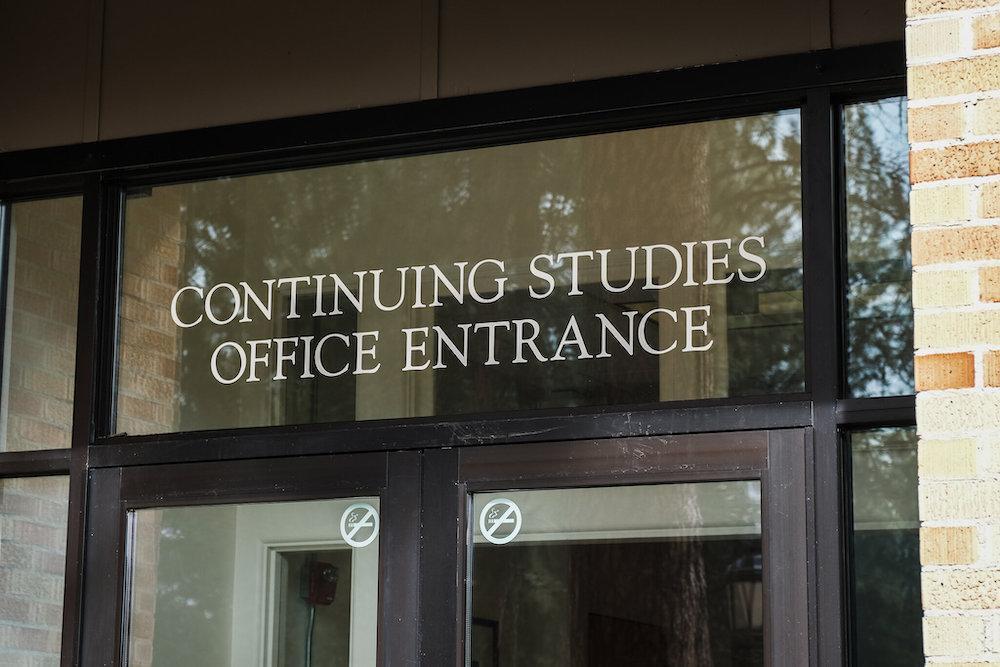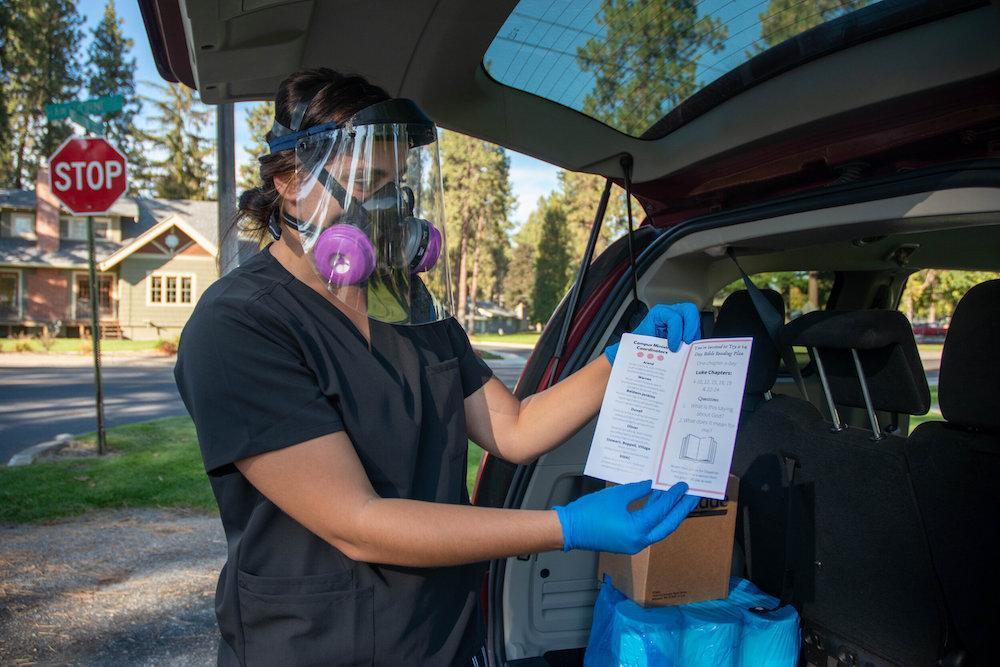
Quarantine experiences vary greatly for Whitworth students, with some students relocating to theme houses, some self-isolating off campus, and even one stuck in Florida. As of October 24, Whitworth has had 51 total cases of COVID-19 on campus between on-campus students, off-campus students, and employees.
Prior to the campus closure last spring, an Incident Command Team was formed in February 2020 to determine the university’s response to the virus. The ICT later created the Covid Response Team to lead administrative efforts, as well as the Covid Care Team (CCT). The CCT manages cases, conducts contact tracing, and takes care of those in isolation and quarantine. This year, the theme houses have been set aside for on-campus residents to quarantine due to infection or exposure.
Courtney Fairhart is a 2016 Whitworth alum who also holds a master’s from Gonzaga in sports and athletic administration. She serves as a contact tracer on the CCT. Contact tracers work to identify students who have symptoms, transport them to quarantine housing, respond to their needs, and trace their recent contacts.
“A key word that was used in the job description was empathy because we are working with people in a time of high stress,” Fairhart said. “That’s something I try to take with me on all my calls. I try to put a smile on my face and add a smile in my voice, and just bring that kindness and tenderness to a situation that can be stressful.”
Junior Hannah Higgins, who currently serves as the Executive Vice President of ASWU, was one of 11 students who self-isolated for almost two weeks prior to the start of the semester. Out of this group of mainly student leaders preparing to help with move-in, several students formed a support system that would stay on Zoom together throughout the day, whether they were eating meals or staying up late watching Netflix.
Higgins, who has struggled with her mental health before, had a hard time with motivation while self-isolating in her room off-campus.
“I had extreme lows where I lost my appetite and motivation to even walk to the bathroom, and extreme highs where I would impulsively deep clean my room, or stay up until 4:30 AM, barely missing the sunrise,” Higgins said.
Junior Kamryn Broennle’s coronavirus symptoms continue to prevent her from coming to Spokane this fall. Broennle has been very sick for about three months, rendering her exhausted every day and unable to do many things besides resting in bed and taking one online class. She lives in Florida and keeps booking flights a few weeks out in the hopes that she will be well enough to come to campus, but each time she has had to cancel.
“All of my classmates and friends are in Washington, so it’s been really difficult to not be there and not be able to do anything with them,” Broennle said. “Also, not taking the amount of courses that I had planned sets me back, and so that’s been a struggle realizing that my health is more important, and I need to get better before I can go back.”
If on-campus students come in close contact with someone who has tested positive or they themselves have tested positive, they are moved to a theme house to quarantine.
At each theme house, quarantined students are provided with resources from campus ministries and the health and counseling center. These include a range of resources, such as journal prompts, contacts for crisis helplines, and on-campus counseling resources. The counseling center holds a Zoom meeting every two weeks for people in quarantine to talk.
Between 24 theme houses, there have been 85 beds set aside for quarantine housing. The theme houses provide basic amenities but remain barren and lack personalized touches. The CCT is making these spaces homier by decorating the walls and repainting the white walls.
While students in quarantine must be careful to avoid exposing others, they are encouraged to get outside to read on their theme house lawn or go for a brief walk without interacting with others. The CCT also walks around houses every few days to talk to students in a socially distanced manner with personal protective equipment.
Leading the CCT is assistant athletic director for sports medicine Jon Bosh.
“Face-to-face interactions are what everybody’s craving right now,” Bosh said, “and that’s a Whitworth thing. That’s relation-building and that is part of the Whitworth experience, so we want to try to encourage that.”
Interviewees offered advice to students who have friends in quarantine, stressing the importance of checking in on people. Higgins appreciated when friends brought her groceries and advised students to talk to people who make them smile, and Broennle enjoyed gifts from friends and family and advice students to find the positive in their situation. Bosh is excited to have other community members help out with supporting students in quarantine.
“Whitworth is such a big campus community, and we care so much about our campus community,” Bosh said, “and so to have everybody start to chip in a little bit here and there, whether it’s walking by a theme house…or providing things to put on walls in theme houses…We are using students to pass on the messages a little bit more often.”
For those who wish to be involved in caring for students in quarantine, there are plenty of options available. One way that people can help is by bringing decorations, pictures, encouraging notes, and more to the Hardwick House for decorating the theme houses. People can also make cookies, write letters, provide distanced face-to-face interaction with quarantined students, go Christmas caroling to the theme houses, or even start a Covid Care Team club that organizes volunteers.
The best way to get involved with caring for students in isolation, ask questions about the campus COVID response, and share ideas is to email [email protected]. To learn more about Whitworth’s COVID response in general, log on to https://www.whitworth.edu/cms/whitworthflex/covid-19-information/.



